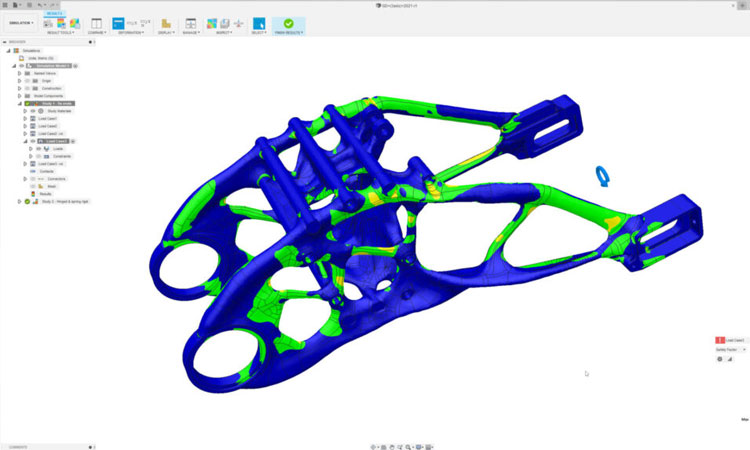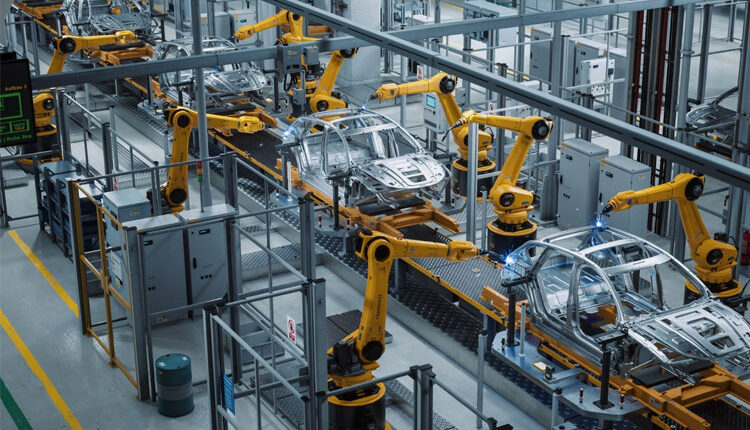Digital Solutions in Automotive Part Manufacturing
This blog discusses the increased use of digital solutions in automotive part manufacturing and highlights how Autodesk Fusion’s integrated CAD, CAM, and CAE tools streamline the design and production process.
The automotive part manufacturing industry is constantly under pressure to produce high-quality, cost-effective parts within tight deadlines. As a result, and evolving from historical manufacturing solutions, the industry has seen an increase in the adoption of digital solutions. The integration of digital tools such as CAD (Computer-Aided Design), CAM (Computer-Aided Manufacturing), and CAE (Computer-Aided Engineering) has revolutionized how automotive parts are designed, tested, and produced. Among the variety of tools available in the industry today, Fusion is one of the most powerful that automotive part manufacturers have at their disposal.
Benefits of digital solutions in automotive part manufacturing
Digital solutions have become integral to automotive part manufacturing by streamlining various processes and improving overall productivity.
One key benefit of digital solutions is the enhancement of productivity. For example, companies that have embraced Industry 4.0 technologies have reported substantial improvements across several key performance indicators (KPIs). According to McKinsey, these include a 30-50% reduction in unplanned downtime due to predictive maintenance and a 10-30% increase in throughput through real-time production monitoring and scheduling systems.
Beyond Industry 4.0 technology, advanced analytics and machine learning have also helped in optimizing manufacturing processes. Enabling real-time data collection and analysis, these technologies lead to smarter decision-making on the production floor. For instance, machine learning models can detect anomalies and predict maintenance needs. This reduces scrap and rework by up to 43% and increases throughput by over 25%, according to Acerta.
Finally, the digital transformation has additionally facilitated better collaboration and data management within the automotive manufacturing sector. Cloud-based platforms allow for seamless data sharing and real-time collaboration among different teams — leading to faster decision-making and reduced lead times. For example, the integration of CAD, CAM, and CAE tools in platforms can offer a unified environment for design, simulation, and manufacturing.

Fusion and automotive part manufacturing
Autodesk Fusion is uniquely well-suited for the needs of automotive part manufacturing.
As a comprehensive digital solution, Fusion offers a unified platform that cohesively integrates CAD, CAM, and CAE capabilities. This allows for streamlining the entire design-to-manufacturing process and enables engineers to move fluidly from conceptual design to simulation and final production — without switching between disparate software tools. Our cohesive environment enhances productivity and reduces the potential for errors and miscommunication that often arise from using multiple platforms.
The cloud-based architecture of Fusion further amplifies its advantages by facilitating collaboration among team members, irrespective of their physical locations. This capability is increasingly crucial in the context of modern, distributed design and manufacturing teams, where global collaboration is the norm rather than the exception. Engineers, designers, and manufacturers can work together in real time, accessing and modifying shared models and simulations. This ensures that everyone is always on the same page. Real-time collaboration accelerates decision-making processes, enhances innovation, and allows for more efficient problem-solving.
Moreover, Fusion’s cloud infrastructure guarantees that all project data is stored securely and easily accessible from anywhere. Teams can quickly respond to design changes, update parts, and optimize manufacturing processes — all while maintaining a single source of truth for all project-related information. This high level of integration and accessibility supports a more agile and responsive manufacturing environment.
Moreover, Fusion supports generative design, a cutting-edge feature that uses AI to explore multiple design permutations based on specified constraints, integrating with Industry 4.0 technologies. While generative design can lead to innovative solutions that are lighter, stronger, and more cost effective than traditional designs, Industry 4.0 integration enables greater productivity, transparency, and efficiency on the factory floor.
Changing the Industry
The increased use of digital solutions in the automotive part manufacturing industry has revolutionized the way companies design, produce, and manage their products. Platforms like Autodesk Fusion amplify the benefits of integrating CAD, CAM, and CAE tools into a single, cloud-based environment for enhancing collaboration, efficiency, and precision. As the industry continues to evolve, embracing digital solutions will help meet the growing demands for high-quality, cost-effective automotive parts.


